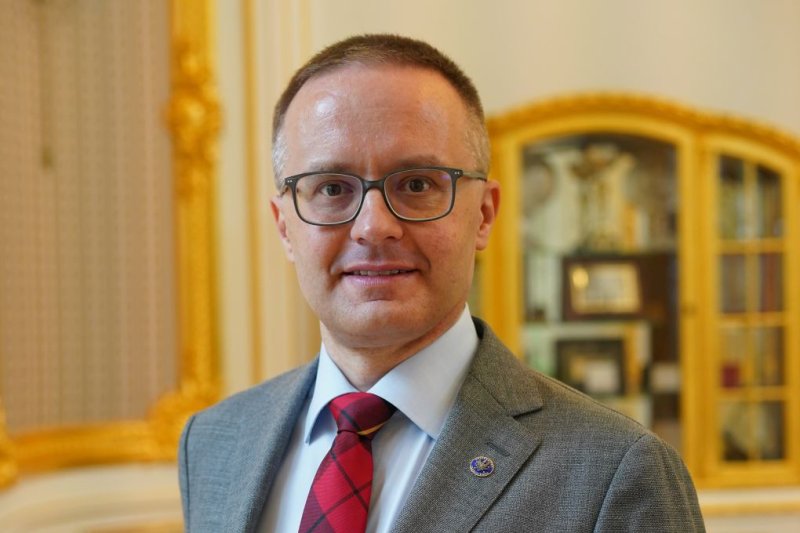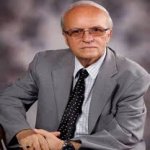Interested in De-Escalation
Given the significance of Poland’s OSCE Chairmanship 2022, but also taking into consideration the tense situation in Europe, especially the threatening dimensions of the conflict between Russia and Ukraine, Albanian Daily News had the privilege to talk with the political analyst and Associate Professor at the Faculty of Political Science and International Studies at the University of Warsaw Maciej Ras.
The professor unveiled his opinions on the role that OSCE can play to negotiate problems of de-escalation of tensions related to West-Russia rivalry over the post-Soviet area.
“We do not know whether Moscow could be ready to use its military force (even in limited scale) against Ukraine openly. For sure, the tough stance of the West deters Russia,” said Professor Ras who received his Ph.D. (2003) and habilitation (2019), both in political science, from the University of Warsaw. He was Vice Dean for Students Affairs. The Dean’s Representative on Foreign Ph.D. Candidates (2013-2020). Previously: the Head of the Postgraduate Cultural Marketing Studies at the University of Warsaw (2006-2014); the Head of the National Security Study at the University of Warsaw (2008-2014); the coordinator of cooperation between the Institute of International Relations, University of Warsaw, and universities in Russia. In the years 2003-2019 he lectured at some universities abroad (e.g., in Russia and the PRC) and presented papers, among others, in Baltimore, Bonn, Frankfurt am Main, Heidelberg, Kaliningrad, Odessa, St. Petersburg, San Francisco and Sofia.
His research interests are international political relations, international relations in the post-Soviet area, Russia’s foreign and security policy, West-Russia relations, East in Poland’s foreign policy, sub-national actors in international relations (paradiplomacy).
Professor Ras was of the opinion that the world must simultaneously tackle either conflict-related threats, or new challenges connected with its socio-economic development. “We are facing COVID-2019, development problems, energy security, socio economic in national, regional and global scale, migrations and so on. The latter problems are much more difficult to be solved than ‘traditional’ conflicts between states (such conflicts are often stimulated by ‘new’ problems),” said Associate Professor at the Faculty of Political Science and International Studies at the University of Warsaw Maciej Ras in the following interview:
Albanian Daily News: 2022 started with a significant event for Poland, which took over the Organization for Security and Cooperation in Europe Chairmanship on January 1. What role can OSCE play in de-escalating tensions in Europe under the chairmanship of Poland?
Polish ProfessorMaciej Ras: Currently, OSCE doesn’t play a significant role in European security system. Especially if we compare it to the role that played by the Commission on Security and Cooperation in Europe (CSCE) during the Cold War period (since 1975, in particular during the second part of 1980s as the platform for negotiations between NATO and the Warsaw Pact), and even the role of CSCE/OSCE in the 1990s. Therefore, openly speaking, it is not the most important instrument of security building from Poland’s point of view.
However, if major powers (especially, the US and Russia) decide to seriously negotiate problems of de-escalation of tensions related to West-Russia rivalry over the post-Soviet area, OSCE could play a role of a platform for negotiations once again in terms of security and confidence-building measures, in particular. For example, it can play that role for reducing the scale of military trainings, their transparency etc.
- Professor, which is currently the assessment from the Polish point of view in the ‘Eastern flank’, and how much can OSCE help to ease the hostility?
- The risk of war (Russia’s aggression against Ukraine, full-scale or limited) is seriously considered in Poland and other NATO countries. For those that are located alongside the NATO’s ‘Eastern flank’ (as well as for non-allied Sweden and Finland), it generates significant threats. It is obvious that the threat of war is destabilizing the situation in the entire region.
An armed conflict would result in dangerous consequences, much more serious destabilization, new conflict situations between the West and Russia, and above all, drastic socio-economic consequences for Ukraine and the rest of Eastern Europe (economic crisis, currency devaluation, waves of migrants, not to mention the direct victims of the war and the related with war trauma). Therefore, Poland is interested in de-escalation of the crisis basing on the principles of international role. Moreover, Poland’s national interests include maintaining the coherence of the West.
OSCE is an international institution. It means that its effectiveness directly depends on interests and policy of the member states, especially the most significant members (major powers) and in this context I mean the US, the EU and Russia.
- What is obvious and what is unseen in the strategic goals of Russia towards Ukraine? Can the West prevent Russia from using openly its military force against that country?
- Goals presented by the West (NATO and the EU) are clear. The Kremlin’s strategic goals are also clear. We know that the most important for Russia is to block further expansion of NATO eastward and try to change status quo in the international relations (especially through breaking the West’s unity). Albeit tactical goals and measures which can be implemented by Russia are not so clear. We do not know whether Moscow could be ready to use its military force (even in limited scale) against Ukraine openly. For sure, the tough stance of the West deters Russia.
- Polish OSCE Chairmanship coincides with the Conference on the Future of Europe. Do you think that OSCE can play any role in framing Europe’s future as there has been hearsay that there are proposals on changing some treaties signed after the end of the Second World War?
- Regarding the coincidence of the Polish OSCE Chairmanship with the Conference on the Future of Europe, I think that yes- that organization can play any role in framing the future of the Old Continent. Referring to your question on ongoing hearsay that there are proposals on changing some treaties signed after the end of the Second World War, I can say the following: It can if both counterparts decide to negotiate (as above) and de-escalate the crisis.
- Having the repercussions of a world war not fought between countries but against the common enemy - COVID -19, it has now been more than two years since this plague goes on. Please, how do you see the behavior of the world, particularly major powers, in face of this war and do you think that much more solidarity is necessary to save our ‘ship’, which in case of sinking takes all humankind with it?
- We must simultaneously tackle either conflict-related threats, or new challenges connected with our socio-economic development. We are facing COVID-2019, development problems, energy security, socio economic in national, regional and global scale, migrations and so on. The latter problems are much more difficult to be solved than ‘traditional’ conflicts between states (such conflicts are often stimulated by ‘new’ problems).
These are ‘strategic’ challenges for world development. Of course international cooperation would ‘soften’ these problems. As you know very well, unfortunately, such challenges are also fields and instrument of competition and rivalry between states. Let’s take into consideration, for example so called COVID diplomacy which has turned into an instrument of cooperation and humanitarian aid, on the one hand, and political and information rivalry, on the other.














